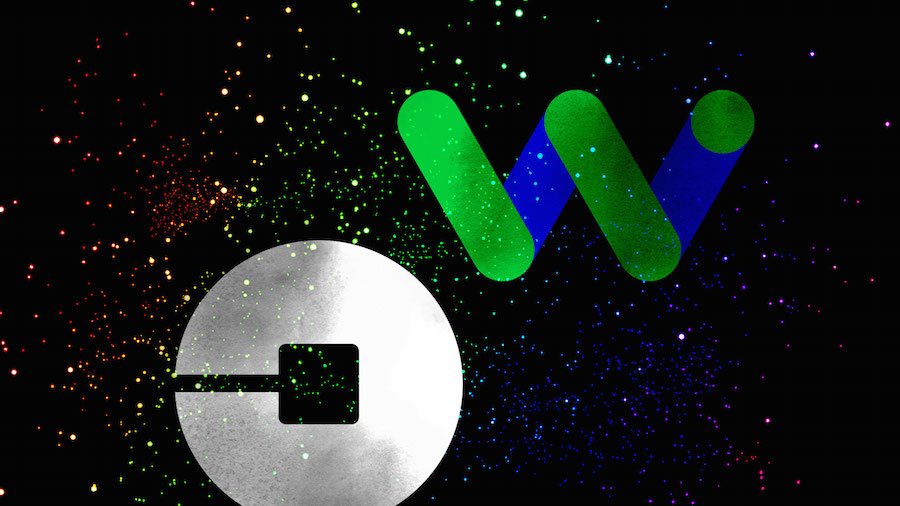Uber and Waymo reach settlement in blockbuster trade secrets trial

The trade secrets trial between Uber and Google's self-driving car spinoff came to a sudden close on Friday, when an attorney for Waymo announced that it had reached a settlement with the ride hailing company.
Waymo will receive a financial settlement that includes 0.34% of Uber's equity based on a $72bn valuation, putting the reward at about $245m.
In a statement, Uber's CEO, Dara Khosrowshahi, said his job included "correcting mistakes of the past. In doing so, I want to express regret for the actions that have caused me to write this letter."
Khosrowshahi apologized to Google employees in the statement, saying Uber's acquisition of a self-driving car company, Otto, "could and should have been handled differently".
"The prospect that a couple of Waymo employees may have inappropriately solicited others to join Otto, and that they may have potentially left with Google files in their possession, in retrospect, raised some hard questions," Khosrowshahi said.
"We are committed to working with Uber to make sure that each company develops its own technology," a Waymo spokesman said in a statement. "This includes an agreement to ensure that any Waymo confidential information is not being incorporated in Uber Advanced Technologies Group hardware and software."
Khosrowshahi did not acknowledge, however, wrongdoing with trade secrets. "To be clear, while we do not believe that any trade secrets made their way from Waymo to Uber, nor do we believe that Uber has used any of Waymo's proprietary information in its self-driving technology, we are taking steps with Waymo to ensure our Lidar and software represents just our good work," he said.
Last year Waymo filed a lawsuit against Uber accusing it of "calculated theft" of the Google spinoff's technology. Much of the trial has centered around laser-sensing technology called Lidar, and the actions of Anthony Levandowski, a longtime Google engineer who was credited as one of the masterminds behind the company's groundbreaking self-driving car program.
The long-awaited trial took place in a packed room at San Francisco federal court this week, with witnesses including the former Uber CEO Travis Kalanick taking the stand. Waymo's attorneys sought to portray Kalanick as a ruthless, win-at-all-costs leader, drawing parallels to Gordon Gekko from the 1987 movie Wall Street.
At one point the court was shown a video clip of Gekko's "greed is good" speech in the movie, which Levandowski had texted Kalanick while negotiating a partnership.
Uber's legal team painted a different picture: one of Waymo seeking revenge after discussions about a partnership broke down and Uber launched its own autonomous vehicle program.
Kalanick was humble and obliging before the jury, paring back his trademark bravado. However, some of the evidence hinted at his bad-boy reputation. Beyond the "greed is good" speech, there were notes from an Uber meeting in which Kalanick wrote that he wanted "IP" and a "pound of flesh" from the deal with Levandowski. Minutes from another meeting, written by a senior Uber executive, noted that Kalanick wanted to use "cheat codes" against competitors and stated: "The golden time is over, it's war time."
"That sounds like something I would say," Kalanick told the court, to a ripple of laughter.
Following the settlement, Kalanick returned to form with a pugnacious statement: "Had the trial proceeded to its conclusion, it is clear Uber would have prevailed."
Levandowski left Google in January 2016 to found his own autonomous vehicle company. Uber's acquisition of that startup for a reported $680m set off the legal dispute that has captivated Silicon Valley for the past year.
Before he left Google, Levandowski allegedly downloaded 14,000 secret documents from a company server. Whether any of the trade secrets contained in those documents made it into Uber's own self-driving technology was the key question in the aborted trial.
The star engineer, who was fired by Uber last spring, was ninth on Waymo's list of witnesses to be called starting Friday morning. He was widely expected to invoke his fifth amendment right against self-incrimination. Now he will avoid that.
The deal is a tacit admission of a trial that was heading in a lose-lose direction. Waymo didn't seem to have established the key element of the case: how trade secrets moved from Levandowski into Uber's possession.
"Without that, Waymo would have lost," said Eric Goldman, a professor of law at Santa Clara University, of the alleged trade secrets transfer.
"On the other hand Uber had been involved in so many nefarious deeds it's so hard to give them the benefit of the doubt. Even if trade secrets never reached Uber, there were so many other bad atmospherics that had Uber sweating."
Related News
